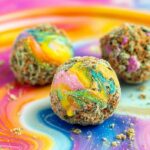Introduction to CBD’s Impact on Skin Conditions and Dermatology
In recent years, Cannabidiol (CBD) has emerged as a beacon of hope in the realm of dermatology, captivating both consumers and scientists alike. This non-psychoactive compound derived from the Cannabis sativa plant is not merely a fleeting trend; it possesses potential benefits for a myriad of skin conditions. As more people seek alternative or complementary treatments, the fascination with CBD is growing. In this guide, we will explore how CBD interacts with the skin, its implications for conditions like acne and psoriasis, and what you need to know if you’re considering CBD for your skincare routine.
Understanding CBD and Its Mechanisms
CBD works through the body’s endocannabinoid system (ECS), which regulates bodily functions such as pain, inflammation, and even skin health. Researchers believe that its benefits stem largely from its ability to modulate the skin’s inflammatory responses.
Anti-Inflammatory Effects
One of CBD’s most celebrated characteristics is its anti-inflammatory properties. Chronic inflammation can exacerbate many skin problems. CBD plays a pivotal role in mitigating this inflammation by regulating enzymes and enhancing antioxidant levels, thus protecting the skin from oxidative stress.
The potential of CBD in reducing inflammation and promoting overall skin health opens new avenues for those struggling with conditions triggered by inflammation.
Hydration and Skin Health
Dry skin can lead to an array of dermatological concerns, from irritation to flare-ups. CBD may enhance skin hydration and integrity, making it an attractive option for those with dehydrated skin. By helping to maintain moisture levels and reducing inflammation, CBD supports improved skin quality.
CBD and Acne
When it comes to acne vulgaris—the most prevalent skin condition—CBD shows promise in addressing its multifaceted causes.
- Anti-Bacterial Properties: Specific studies highlight CBD’s capability to inhibit the growth of Cutibacterium acnes (commonly linked to acne). This property could result in fewer breakouts and less severe acne overall.
- Reduction of Inflammation: CBD helps to alleviate the redness and swelling associated with acne by curtailing the activity of pro-inflammatory cytokines, such as IL-1β and TNF-α.
- Synergistic Effects: Interestingly, studies reveal that combining CBD with other natural extracts like Centella asiatica can enhance its effectiveness, leading to improved skin conditions.
These mechanisms illustrate why CBD is being integrated into acne treatment regimens, complementing traditional approaches.
CBD and Psoriasis
Psoriasis, a chronic autoimmune disorder that leads to scaly patches of skin and intense itching, significantly diminishes quality of life for many. CBD’s potential role in the treatment of psoriasis stems from its multifaceted actions.
- Reducing Inflammation: By combating inflammation and oxidative stress, CBD addresses key factors in psoriasis. Its interaction with the ECS and regulatory pathways aids in controlling immune responses and the production of skin cells.
- Clinical Evidence: Promising findings indicate that topical CBD applications can significantly improve the severity of psoriasis symptoms, as measured by scales like the Psoriasis Area Severity Index (PASI).
- Safer Alternative: Unlike traditional treatments, such as corticosteroids, CBD might offer effective anti-inflammatory benefits without the concerning side effects, making it an appealing alternative for many.
The prospect of CBD in treating psoriasis not only aims to alleviate symptoms but also offers hope for a better quality of life for those afflicted.
Safety and Potential Side Effects
As with any skincare treatment, understanding safety and potential side effects is crucial.
- Skin Irritation: While most people tolerate CBD well, some may experience mild skin irritation or rashes upon using topical products. These reactions typically resolve once usage is stopped.
- Systemic Effects: Though rare, some have reported systemic side effects such as headaches, but these cases largely relate to the consumption of CBD in forms other than topical application.
Always approach new products with caution, especially if you have sensitive skin or existing conditions.
Using CBD Products for Skin Conditions
Choosing the Right Product
Selecting high-quality CBD products for skin care is essential. Opt for brands that provide transparent information about ingredient sourcing, third-party testing, and overall product purity. Here are a few tips:
- Check for Certificates of Analysis (COA): This ensures the product contains the stated amount of CBD and is free from contaminants.
- Read Ingredient Labels: Look for natural ingredients and avoid unnecessary chemicals or synthetic fragrances.
Application and Dosage
Topical CBD formulas often come in various forms—creams, balms, and serums. Here’s how you can effectively incorporate them into your skincare routine:
- Follow Instructions: Adhere to the manufacturer’s recommended dosages.
- Frequency of Use: Depending on your skin condition, you may apply the product once or twice daily.
- Patch Testing: Always conduct a patch test on a small skin area before applying widely to check for any allergic reactions.
Conclusion
As research in dermatology progresses, CBD continues to show promise in treating various skin conditions, particularly acne and psoriasis. Its anti-inflammatory and hydrating properties could make it a valuable asset for anyone seeking an alternative or complementary approach to skincare.
To make the most of CBD’s benefits, remember these actionable tips:
- Consult a Dermatologist: Seeking professional advice can help tailor treatment to your specific needs.
- Choose Quality Products: High-quality CBD products enhance safety and efficacy, so prioritize transparency and reliability when shopping.
- Monitor Your Skin: Keep an eye on how your skin responds to CBD. Documenting changes can guide you towards the right product and regimen.
By thoughtfully integrating CBD into your skincare routine, you get the chance to explore a natural avenue for enhancing skin health.




















